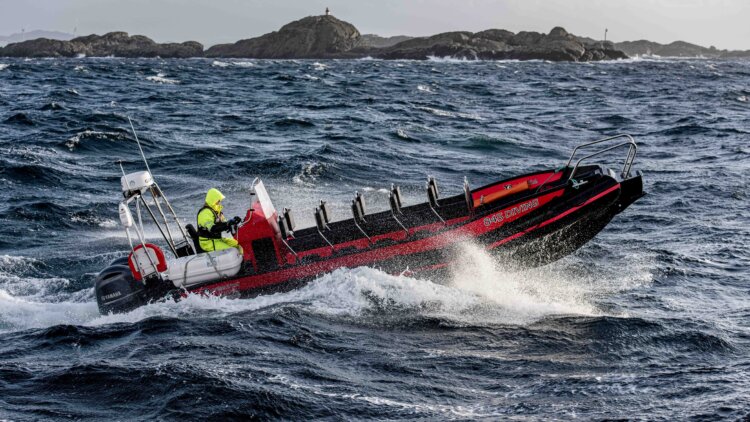March 26, 2024
(press release)
–
© AKVA group™ Borealis and AKVA group are pleased to announce a breakthrough in sustainable aquaculture: a workboat hull constructed from renewable plastic. The boat will be unveiled in Mo i Rana, Norway, in Spring 2024, marking a significant step forward for circularity in marine technology. Borealis is one of the world’s leading providers of advanced and sustainable polyolefin solutions. AKVA group is the world's foremost technology provider to the aquaculture industry. The iconic Polarcirkel™ series is known for its practical design, exceptional reliability, and unmatched safety. Used in a wide range of industries, including fish farming, oil and gas, rescue, defense, Arctic tours, and recreational boating, these vessels can endure some of the most challenging conditions on the planet, from -40°C in Arctic regions to +55°C in the tropics. Using Borealis’ Bornewables™ portfolio of renewable polyolefins, AKVA group can now offer these boats with a substantially reduced carbon footprint. Derived from renewable sources such as used cooking oil, the Bornewables offer the same material performance as virgin plastics, yet decoupled from fossil-based feedstock. The hull is made from Borealis BorSafe™ HE3490-LS-HW grade, which is composed of 90% renewable content based on a Mass Balance approach. For every kilogram of polyolefin produced, this grade achieves an estimated reduction of 1.9kg of CO2 equivalent emissions when compared to a fossil-based equivalent.[1] AKVA group has also taken sustainability a step further, transporting materials to Mo i Rana by train to minimize the transportation carbon footprint. These measures represent clear and measurable progress towards reducing climate impact and establishing a circular economy. In the near future, the partnership between Borealis and AKVA group is set to expand to cover a wider range of workboat components as well as floating aquaculture constructions made of pipes. “The aquaculture industry is poised for a circular transformation, and we’re excited to lead the charge with the help of Borealis. Our first priority will always be the safety of the people on board our vessels, and it’s remarkable that this can now be achieved just as effectively with a much smaller carbon footprint,” says Freddy Bakken Braseth, General Manager of the AKVA group department in Mo i Rana. “We’re committed to supporting our customers to move away from traditional feedstock and to embrace renewable materials,” explains John Webster, Borealis Global Commercial Director Infrastructure. “The use of the Bornewables in Polarcirkel affirms that high-performance standards can be met sustainably. This move is a significant step forward in our EverMinds mission to accelerate the transformation to a circular economy – with this we put reinventing essentials for sustainable living into full action.” [1] A cradle-to-gate Life Cycle Assessment (LCA) study, conducted according to ISO14040:2006 and ISO14044:2006 standards, was carried out to assess the environmental impact of producing the BornewablesTM polypropylene (PP) and polyethylene (PE). The study compared the potential footprint of Bornewables materials produced at sites in Sweden, Finland and Belgium using both steam cracker and propane dehydrogenation processes, with that of equivalent polyolefins derived from fossil feedstocks at the sites. END AKVA Group press and media
Photo: The robust Polarcirkel™ boats, known for their great design, quality build, unique adaptability, user-friendliness, and low maintenance requirements, are now available with Borealis Bornewables™ materials.
This media release is also available in German language.
Media contacts:
Borealis Group Media Desk
Virginia Wieser, Lena Lehner, Karin Schober
Tel: +43 1 22 400 899 (Vienna, Austria)
E-mail: media@borealisgroup.com
Ståle Økland, Communications Director, AKVA group
Tel: +47 90 85 50 86
E-mail: sokland@akvagroup.com
* All content is copyrighted by Industry Intelligence, or the original respective author or source. You may not recirculate, redistrubte or publish the analysis and presentation included in the service without Industry Intelligence's prior written consent. Please review our terms of use.




